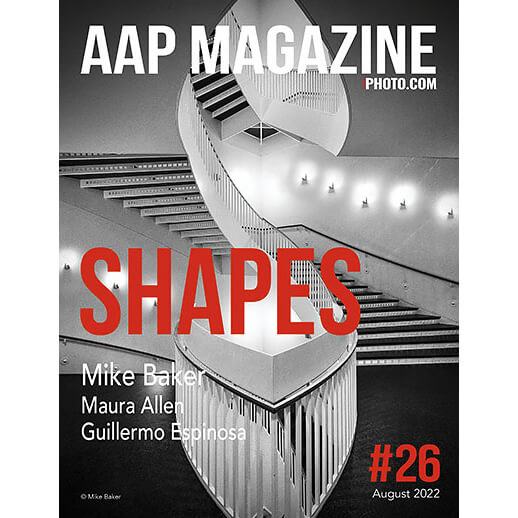We're delighted to reveal the names of the 24 talented photographers who won ''AAP Magazine #26: Shapes''. Thank you to my dear friend Ann Jastrab, the Executive Director of the
Center for Photographic Art for being a juror for this competition.
For this 26th edition of AAP Magazine, we were looking for submissions of works of art that explore composition and form as a fundamental aspect of the photographic aesthetic, be it pure visual formalism or in support of a thematic objective. Understanding shape and form is one of the pillars of photography composition, and it can make even the most common object become a work of art. Geometric, organic, positive or negative, shapes contribute to a photograph’s overall esthetics and vibes.
We chose twenty-four photographers for their different approach to the idea of Shapes. Their work is diverse: architecture, mixed- media, still life, abstractions... and use different techniques & perspectives but each one showcases a unique point of view.
The Winner of AAP Magazine 26 Shapes is Mike Baker (USA)
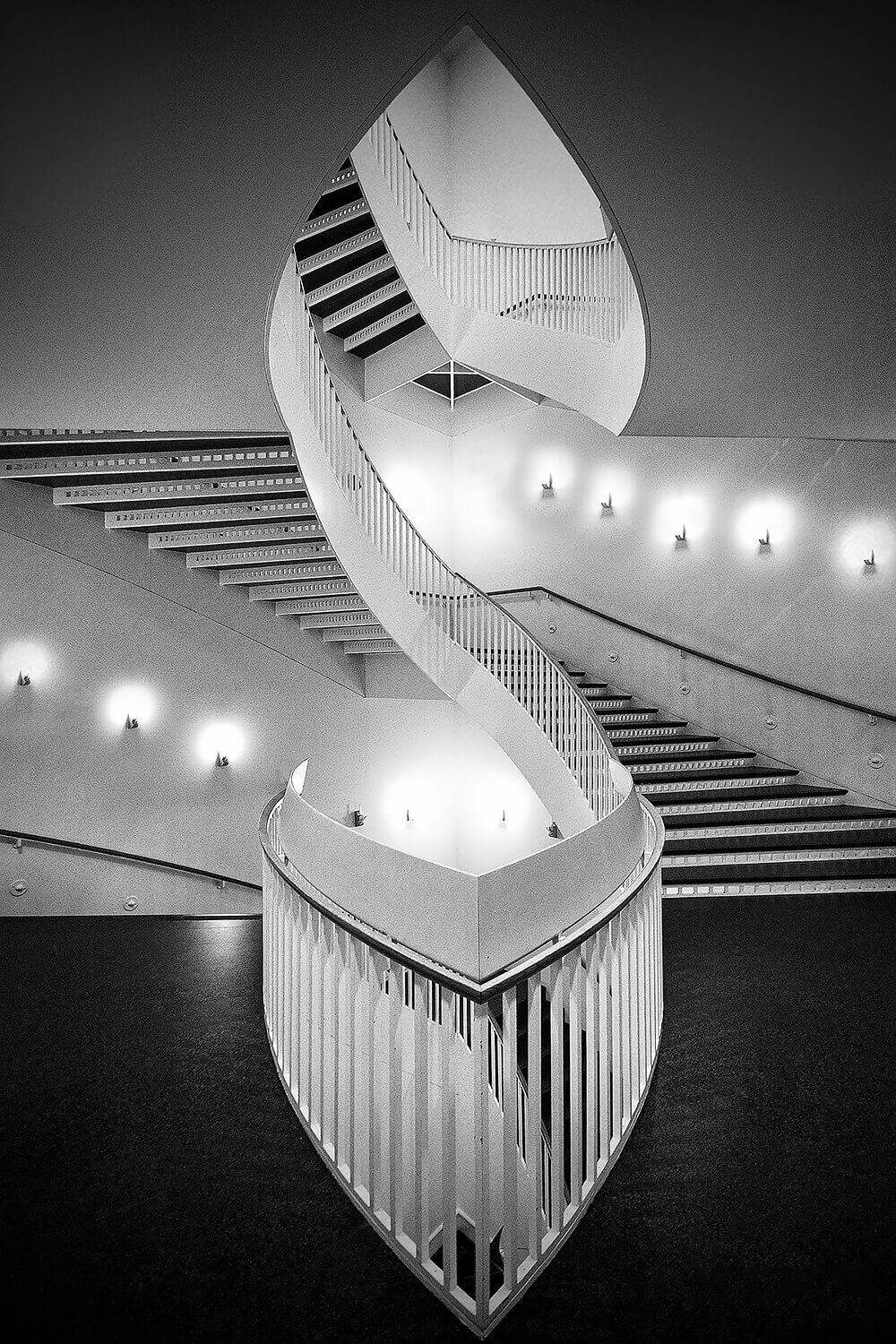
S-Curve from the series 'Urban Architectural Shapes and designs' © Mike Baker
Staircases have such personality; no two are the same. If one looks closely, several
compositional elements can be observed and captured including lines, shapes, curves,
repetition. The image captured here is at Chicago’s Museum of Contemporary Art (MOCA).
www.3rdeyephotographic.com
The Second Place Winner is Maura Allen (USA)
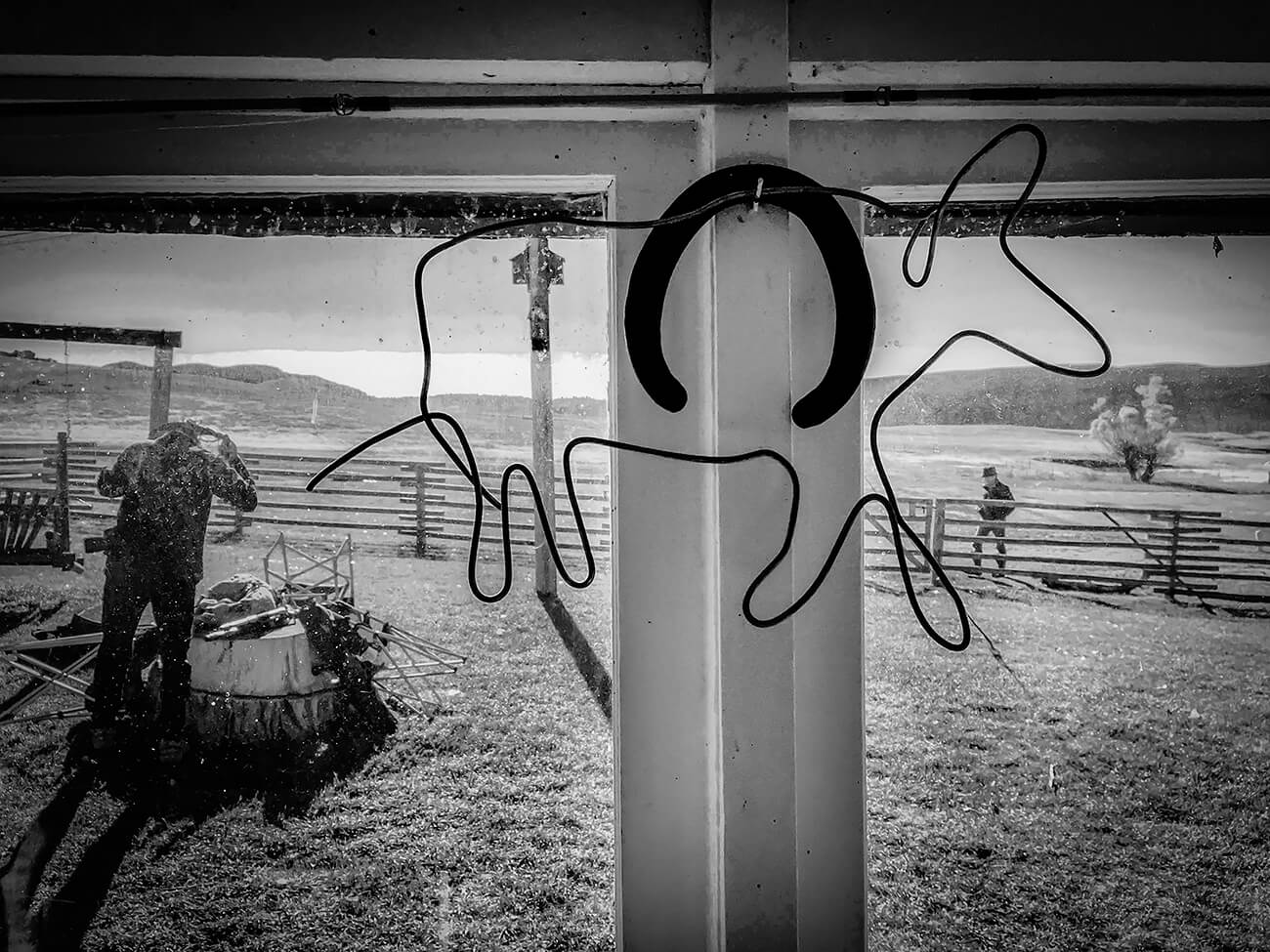
Ranch House from the series 'The West Takes Shape' © Maura Allen
It's easy to get seduced by the wonder of the West—the landscape, the running horses, the
excitement that surrounds you at a rodeo. It’s when we slow down that the shapes and patterns
of the place reveal themselves.
www.mauraallenphotography.com
The Third Place Winner is Guillermo Espinosa (Germany)
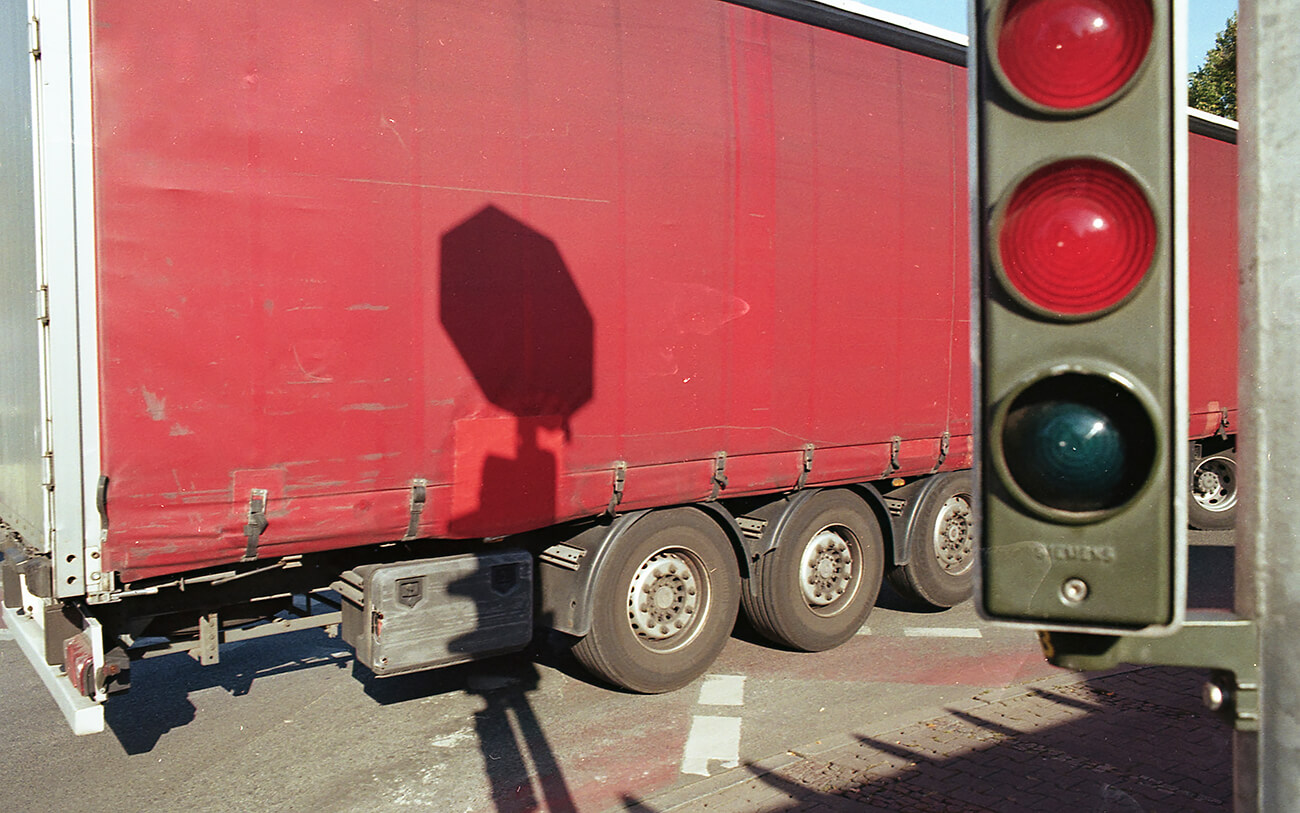
Semáforo from the series 'Visual Rhymes' ©Guillermo Espinosa
This photo was a so called lucky shot or a reflex shot. After walking during hours in the
suburbs of Berlin, I saw the truck crossing the zebra and how the color fits with the traffic lights
and the wheels matched with the traffic light shapes. Everything made sense for me in those
seconds I was able to grab my camera, frame and shoot what i thought was an interesting
image.
All About Guillermo Espinosa
MERIT GALLERY
Wayne Swanson (USA)
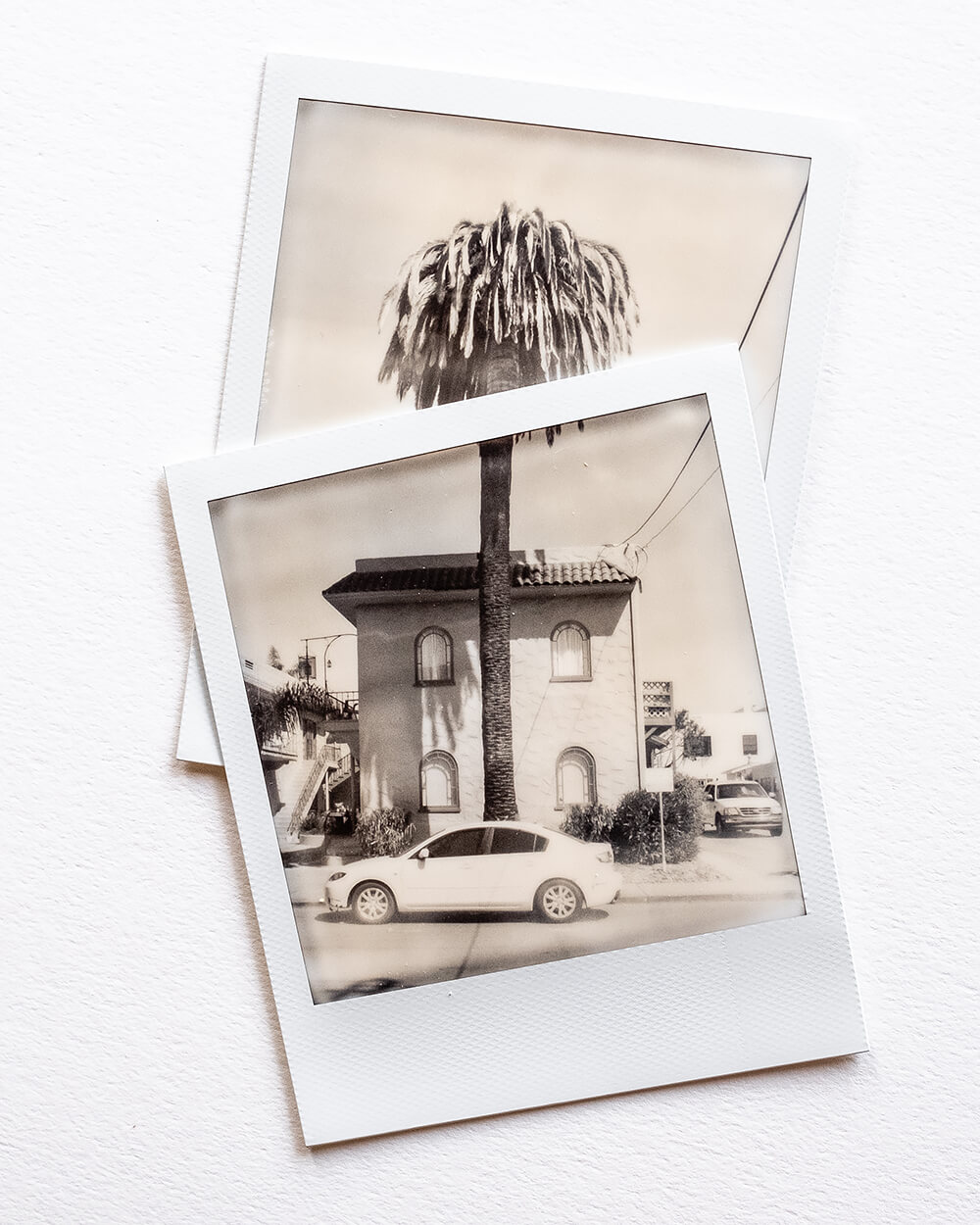
Expired Palms #2 © Wayne Swanson
Expired Palms documents the battle in Southern California between two non-native species, the
Canary Island palm and the South American palm weevil. The weevil’s larvae eat the interior of
the palm’s trunk, eventually killing the trees. My vintage Polaroid SX-70 was the perfect tool for
capturing their fading glory.
All About Wayne Swanson
Florian W. Mueller (Germany)
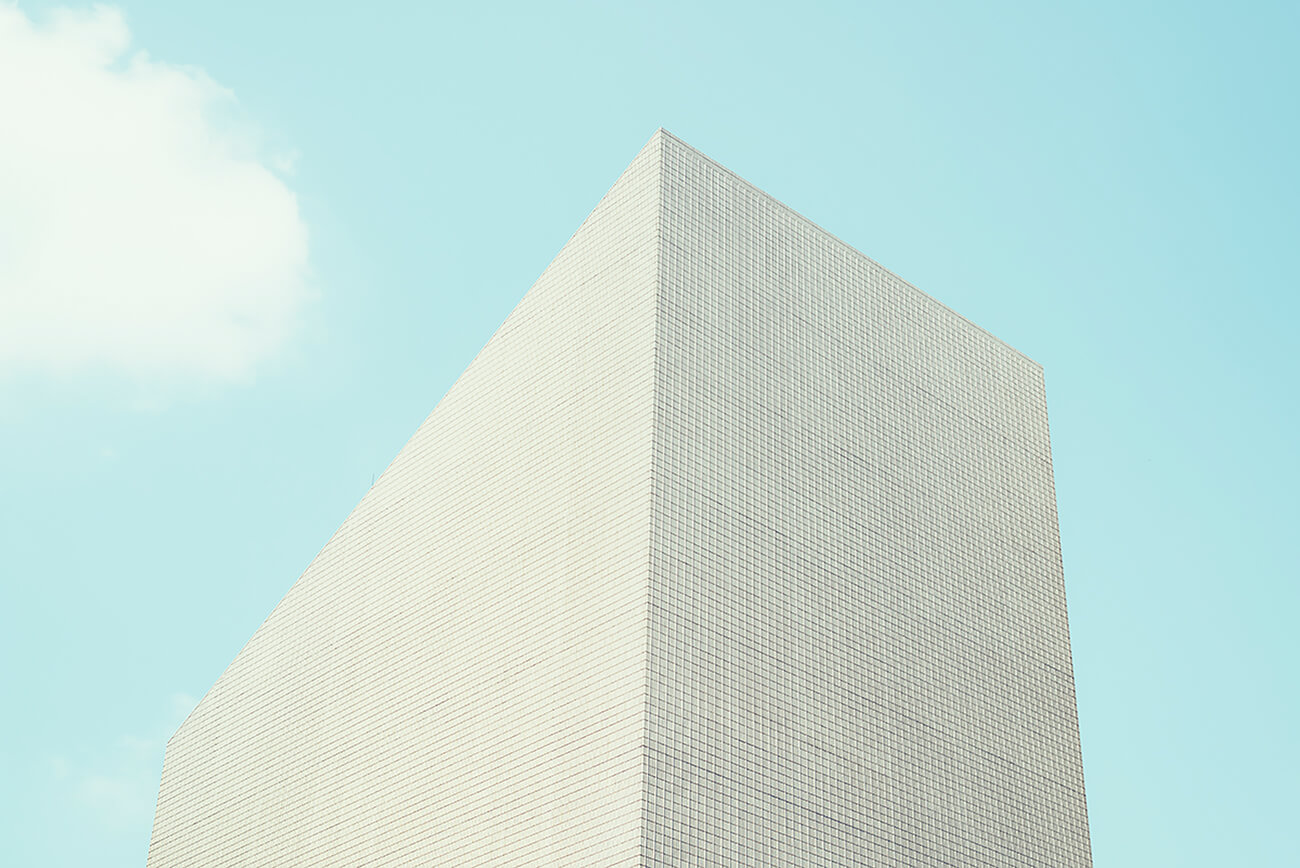
MOA, No. 1 © Florian W. Mueller
The Hong Kong Cultural Center in Hong Kong.
On the one hand, the reduction to the architecture - without references to the surroundings -
takes away the possibility of estimating the size of the building; on the other hand, the cloud
gives an indication of precisely this size.
Barbara Hazen (USA)
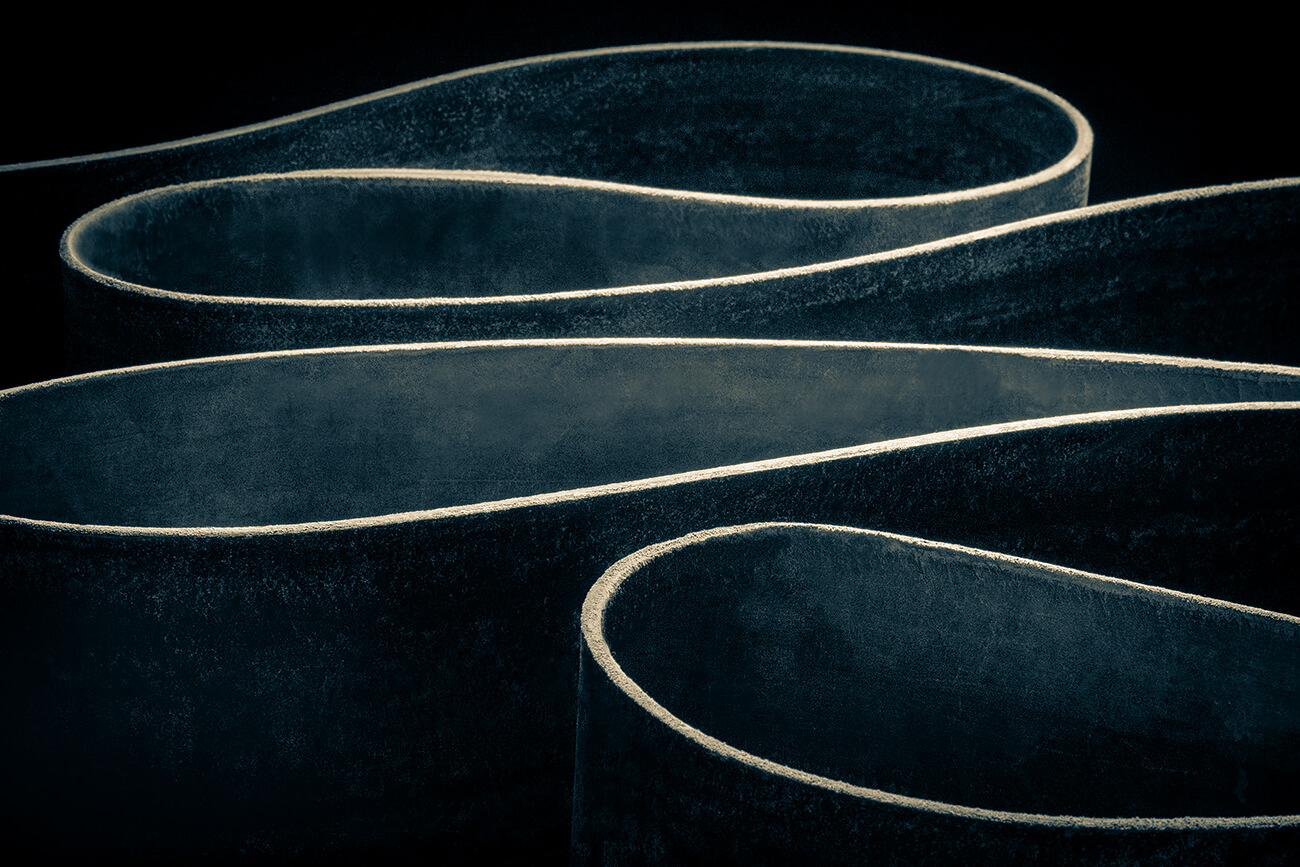
Leather Strap Study #2 © Barbara Hazen
Drawn to this old leather carriage strap found in a curiosity shop, I was immediately drawn to
its texture and ability to bend into sinuous shapes.
All About Barbara Hazen
Ray Knox (UK)
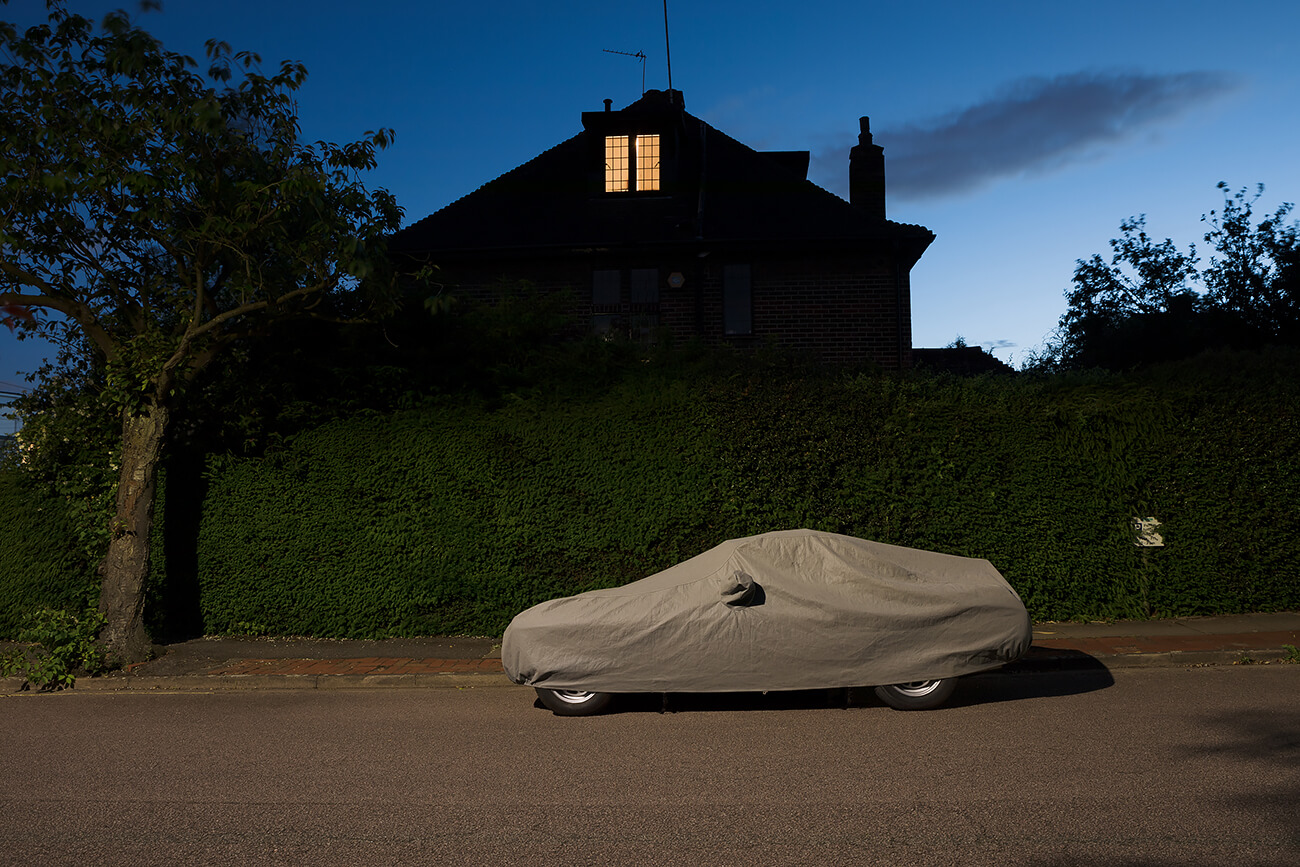
Shrouded in Mystery © Ray Knox
I started photographing this series shortly after the introduction of the first lockdown as a way
of alleviating my restlessness from being confined to home all day.
I would venture out on my neighbourhood walks just after dusk when the streets were deserted
and eerily quiet.
The solitude I found wandering the streets was an almost meditative experience of simply
observing as I walked
It gave me the chance to explore my local surroundings more closely and notice things I had
overlooked for years.
What a revelation, streets so familiar during the day were completely transformed after dark.
London is a dream location to spot classic cars, some tucked away in shadowy places, while
others revel in the glare of streetlights.
But the vehicles which really caught my attention and most intrigued me were the secretive
ones, covered up, and shrouded in mystery.
All About Ray Knox
Tom Schifanella (USA)
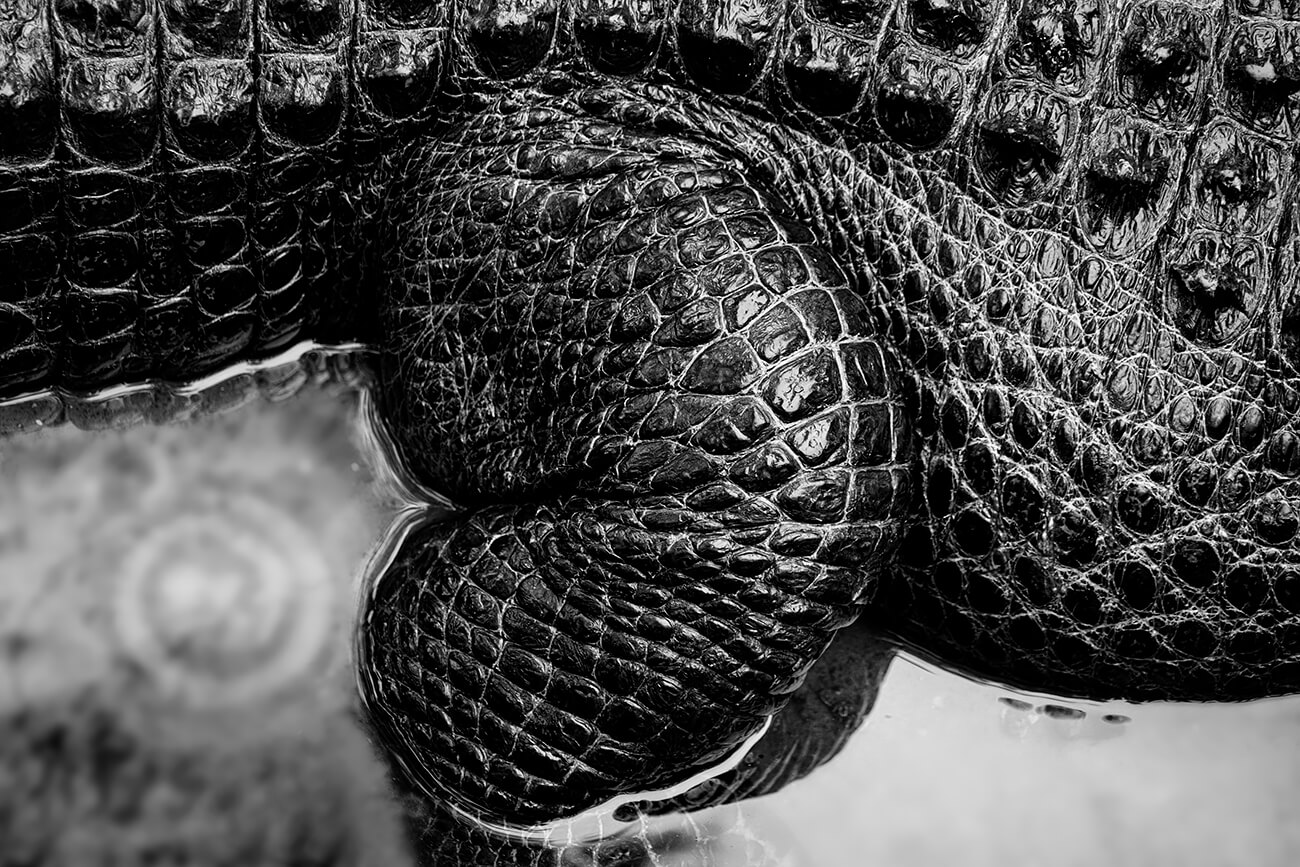
American Alligator IV © Tom Schifanella
An ongoing series revealing the inner beauty of these amazing and misunderstood creatures
through photography.
All About Tom Schifanella
Gregory Spaid (USA)
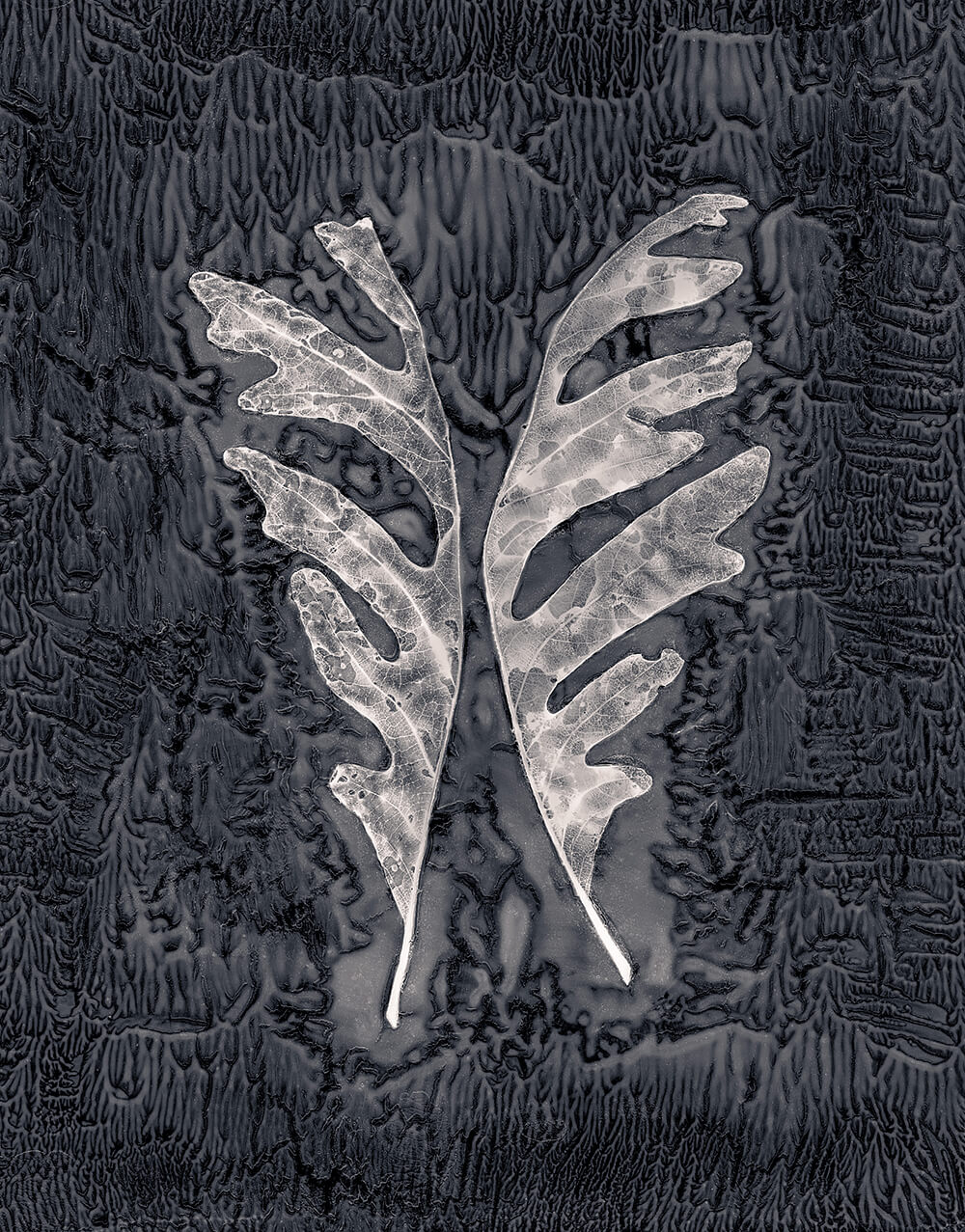
Leaf Cut #36 (oak), 2018 © Gregory Spaid
Leaves occur in such abundance where I live as to seem worthless, and yet each one is
astoundingly complex and beautiful, both in form and function. I think of each one as a
microcosm for all of Nature. The photographs in my Leaf Cutting series are made without a
camera. I make the negative by hand, a process from the 19th century known by the French
term cliche verre. My process is a hybrid one and an experimental contemporary version of that
earlier process. After making the negative by hand, using actual leaves and other materials, I
scan it, process it digitally, and then print it as an archival inkjet print.
All About Gregory Spaid
Klaus Lenzen (Germany)
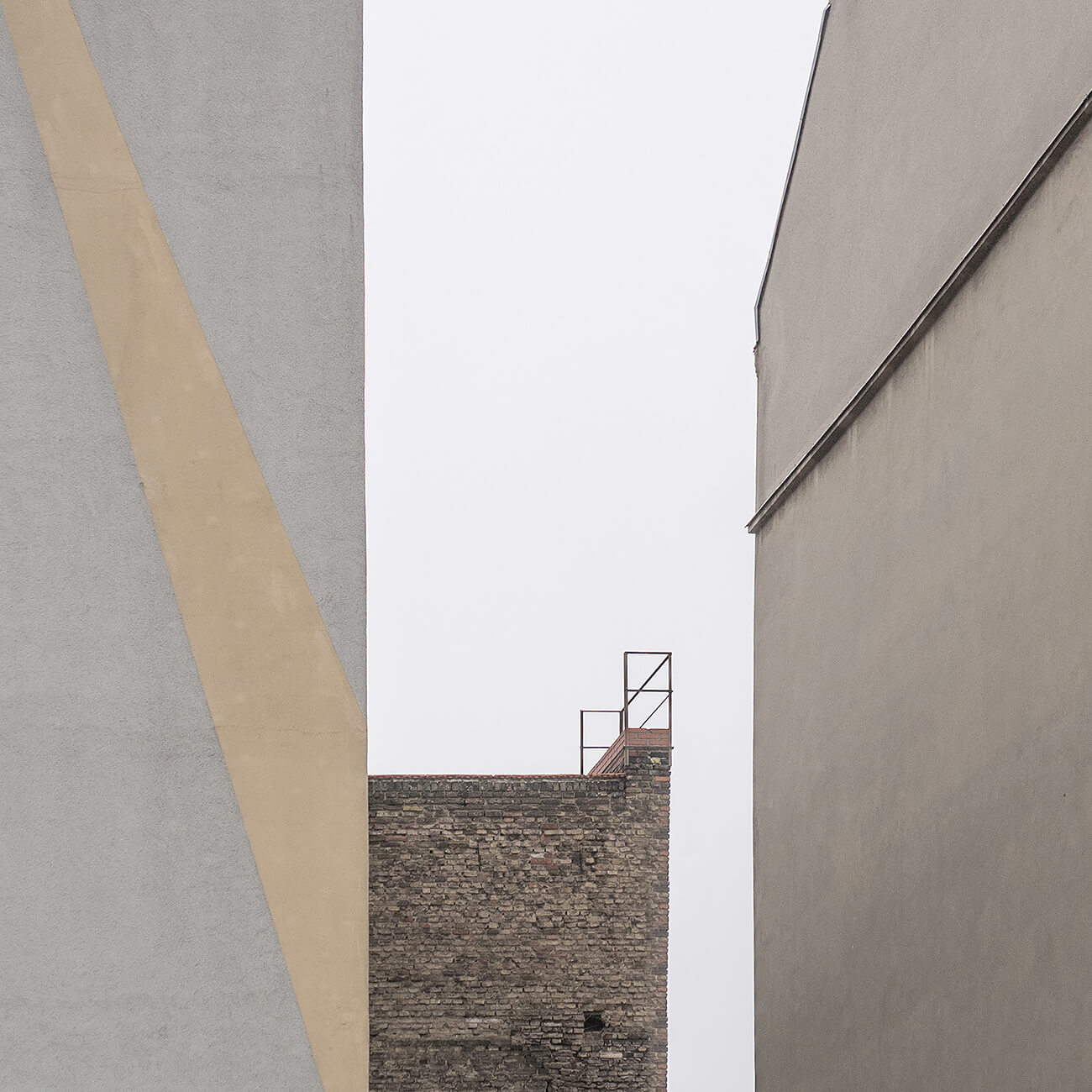
Berlin backyards I © Klaus Lenzen
They can still often be seen in Berlin, windowless backyards and gable walls. With their special
shapes, colors and structures, they unfold their distinctive charm.
All About Klaus Lenzen
Stephen Albair (USA)
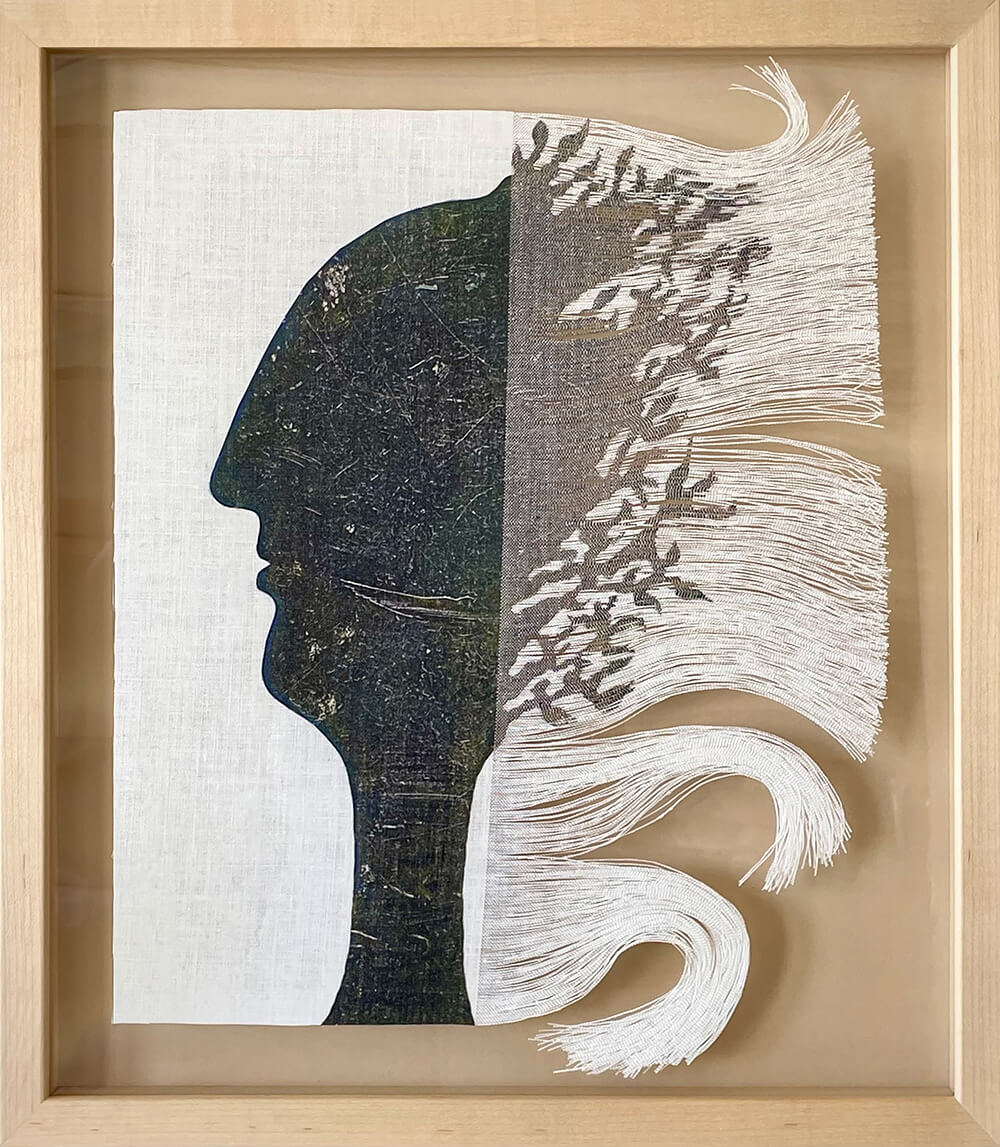
Monolith 2022 from the series 'Framed shredded photo-transfer on linen' © Stephen Albair
This series begins with a photo-transfer onto linen in which the original photograph is shredded
into individual strands. Prismacolor pencil drawing enhances the photo, creating greater depth
in a similar way as the hand-coloring process applied to historical photographs. The result
exposes inherent qualities about both the image and the linen. Once framed, the individual
strands swirl as if suspended in mid-air while revealing another dimension to the photograph.
All About Stephen Albair
Beth Galton (USA)
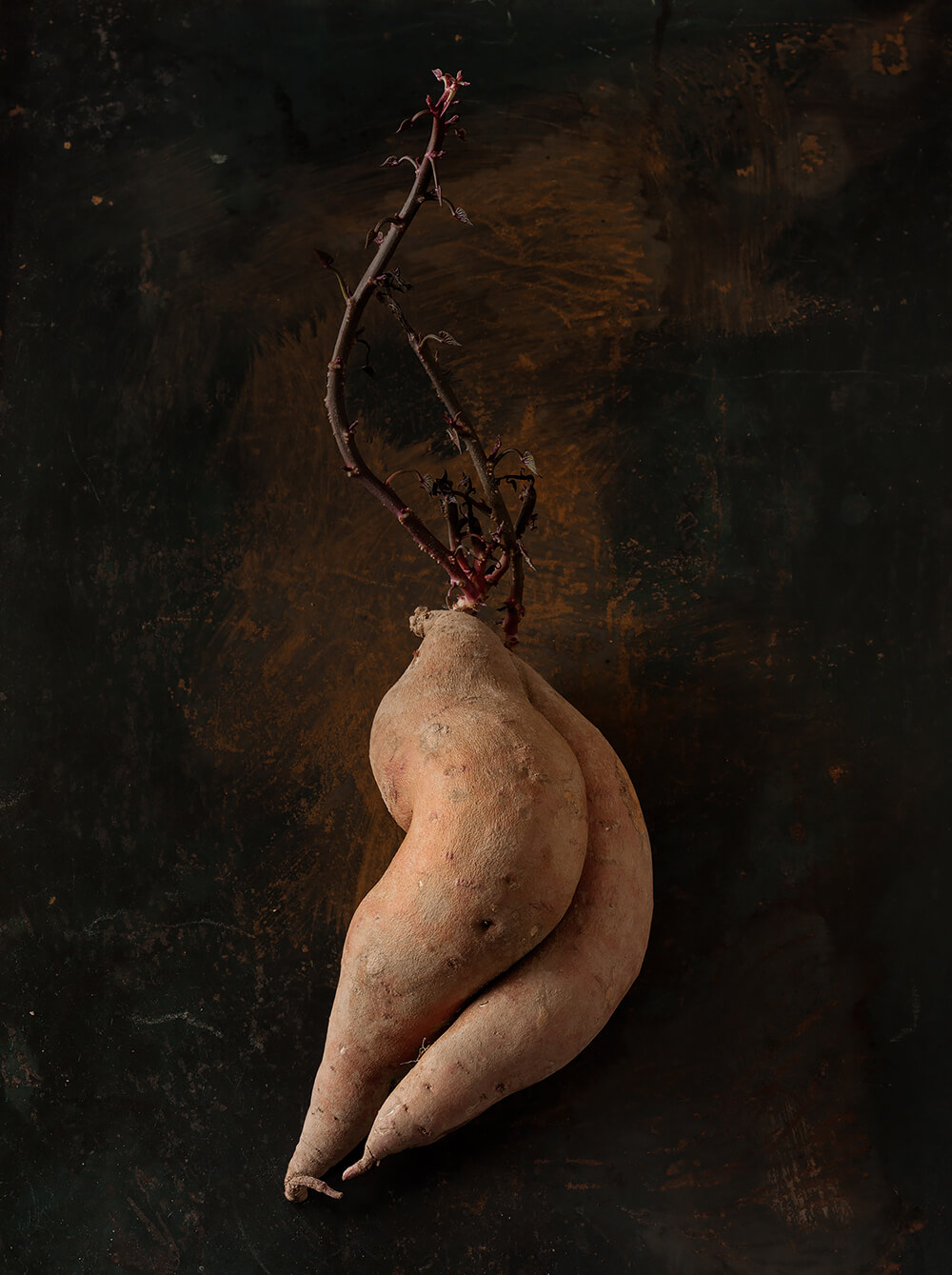
Garnet Sweet Potato #1 from Union Square Greenmarket, N.Y., N.Y.; Propagation period: 15 days in South-facing window from the series 'Potato Love' © Beth Galton
Potato Love is a photographic series that explores the miraculous growth that emerges from a
potato during its tenuous life cycle. I collected potatoes I found visually interesting at farmer’s
markets and nurtured them as they matured and sprouted growth while in my studio. They
began to take on their own human like personas which I looked to accentuate and capture in my
photographs. I want these assemblages and portraits to connect the viewer to the ecological
cycles of the natural world, including reflecting on their own aging and mortality.
Mitchell Anolik (USA)

Beach Huts from the series 'Focus' © Mitchell Anolik
I have had a penchant for minimalism. This series forces ones
eye to focus only on the essential elements of the image.
This is accomplished by totally removing all irrelevant material
and applying a gradient over these areas.
Francesco Pace Rizzi (Italy)
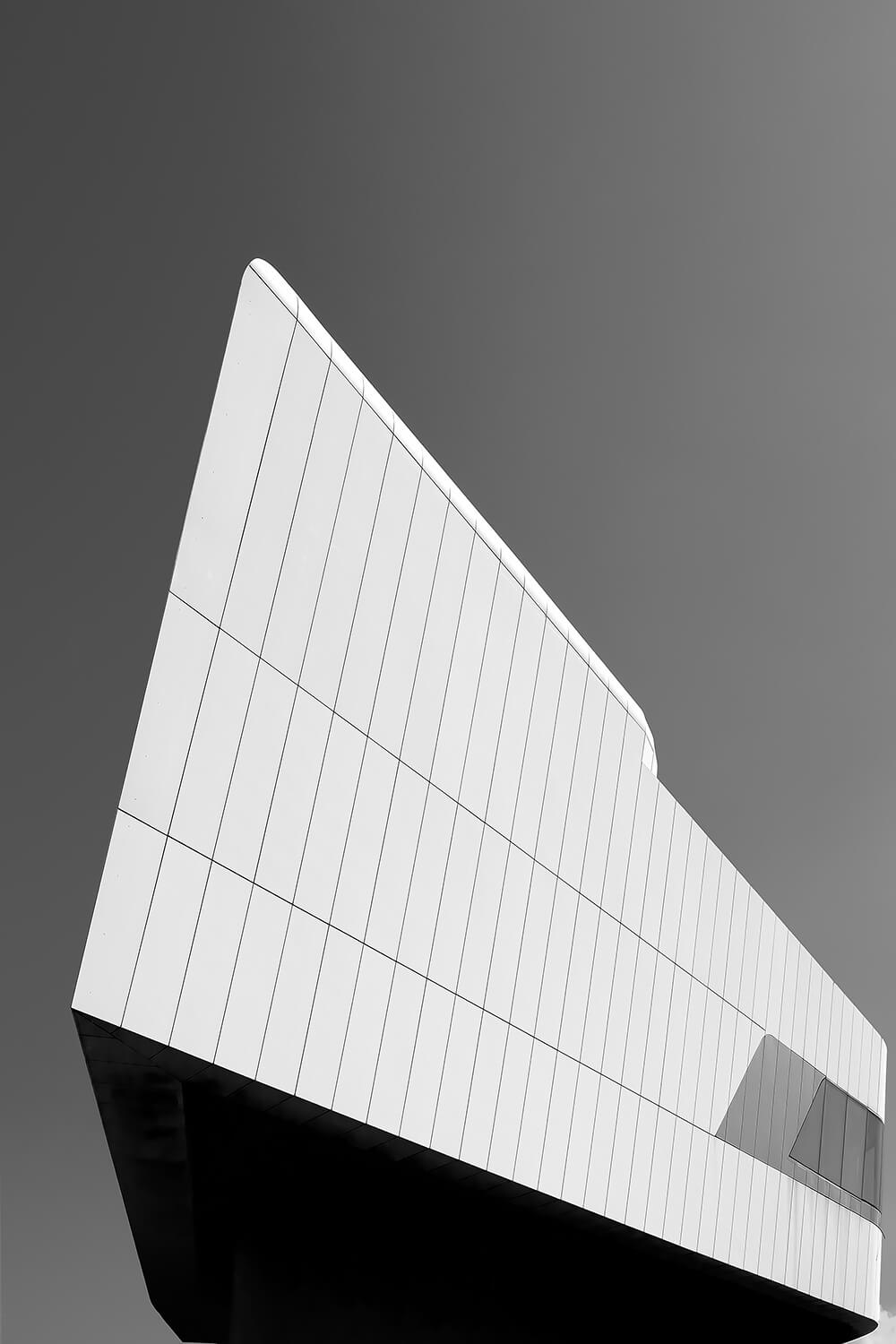
ArchiZaha 01 from the series 'Archifluid' © Francesco Pace Rizzi
The station F.S. of high speed designed by Zaha Hadid Architects in Naples-Afragola, an
example of sustainability, functionality and modernity. The building has large windows
supported by steel and concrete walls flush with the Corian cladding. To cover the station, a
window covering over 6,000 square meters was created. From a technological point of view, the
structure is oriented according to the best sustainability criteria: Solar panels integrated into the
roofing of the canopies, combined ventilation and integrated cooling and heating systems make
it possible to minimize the annual energy requirement.
Shesaidred (USA)
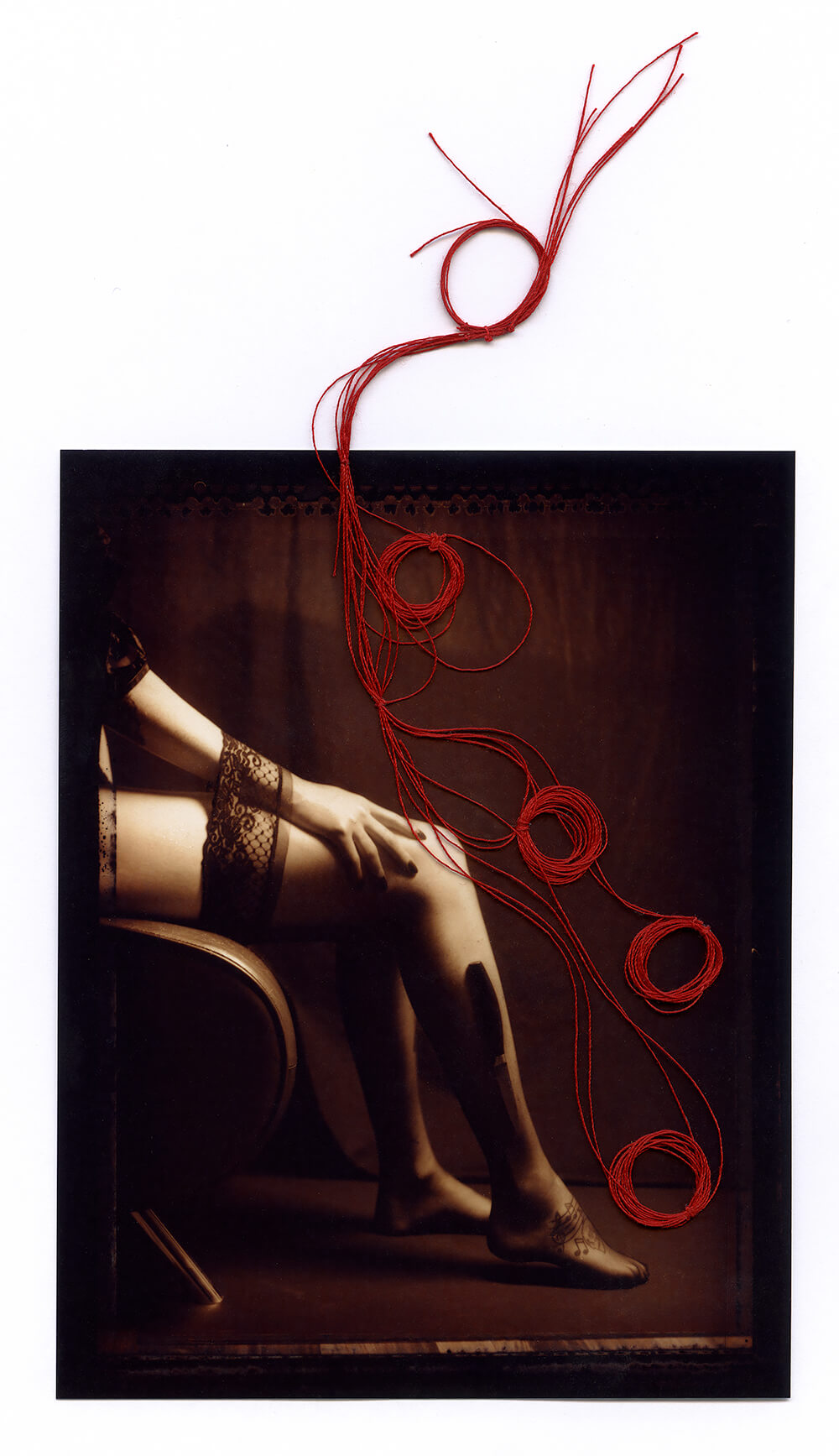
Oocitos Ovarios © Shesaidred
Women birth this planet. Period (no pun intended) Oocitos Ovarios photographs help me
express my ideas about female bodily autonomy. Females have only so many oocytes upon
birth whereas males can supply their contribution till death…. In these photographs, the red
represents the oocytes and the decisions that may arise upon fertilization of those eggs.
Fertilization is complex and can become more complex depending on circumstances, and a
female can find herself fertilized against her wishes… only she should decide what is to become
of her oocytes upon fertilization…
All About Shesaidred
Ellen Konar and Steve Goldband (USA)
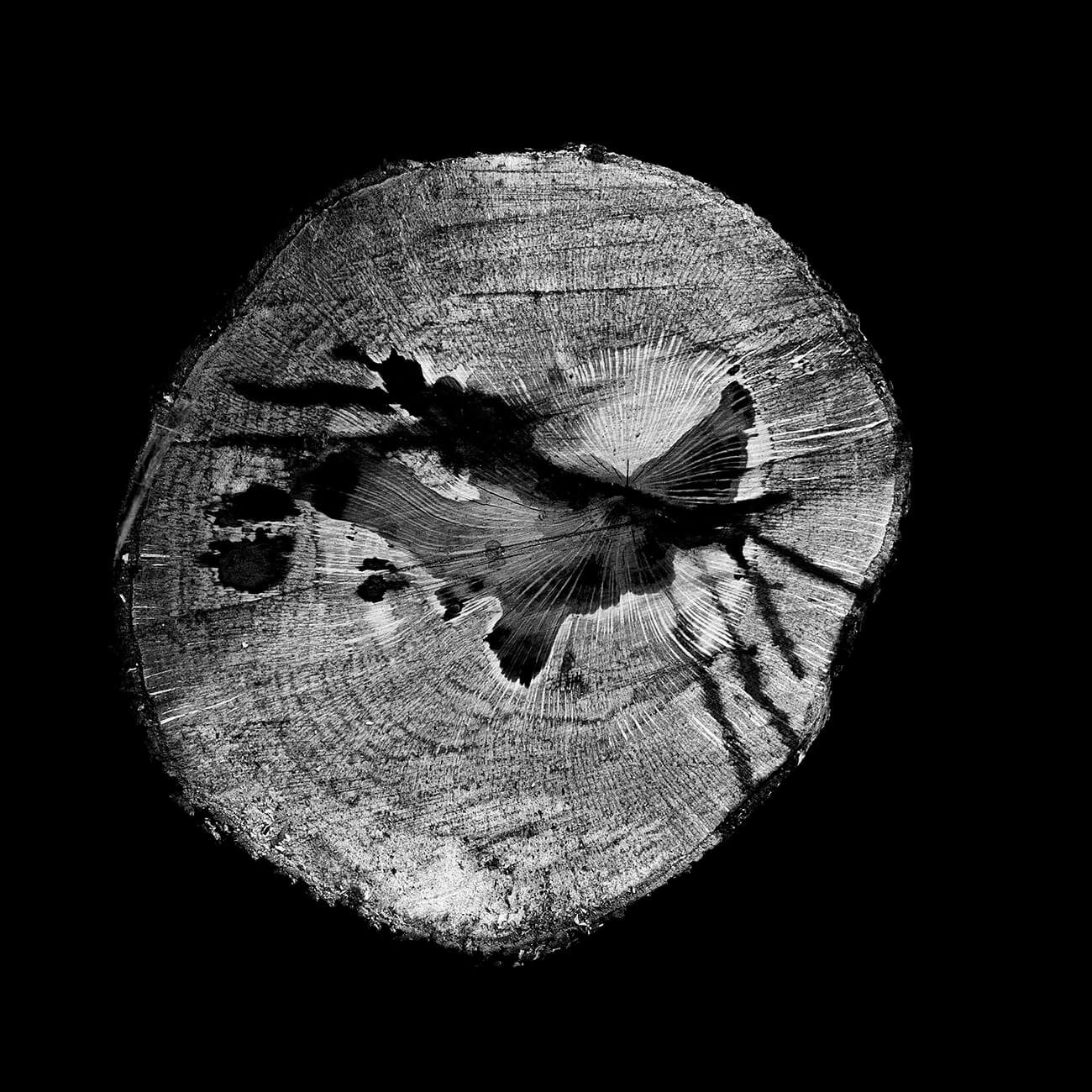
Oriel from the series 'Cut Short' © Ellen Konar and Steve Goldband
This image captures a single face of wooded life, the symbols of strength, kinship and even life
itself, cut short. We come to this photographic project with a degree of personal responsibility
and regret. At the behest of our town, with a building permit in the offing, we removed an
outcropping of “non-native” and therefore “invasive” redwood trees. The portraits of trees “cut
short” are our tribute to the one-time inhabitants of our property and beyond who are no longer.
The raggedly severed cross section serves as a portrait and memorial to the life that once
served as an animal habitat, reduced the threat of global warming, and provided hope for the
future of our planet.
Jacqueline Walters (USA)
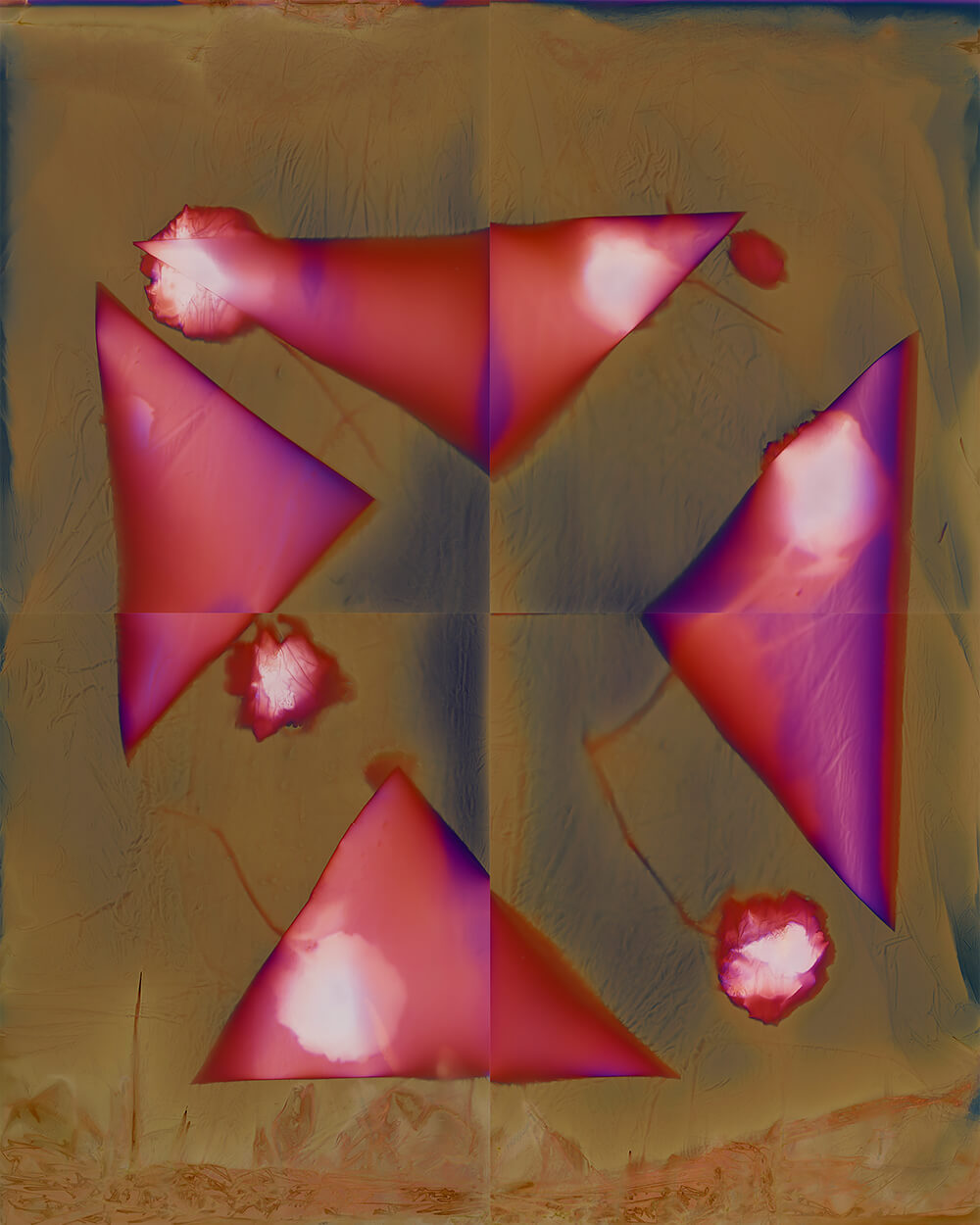
Learning Mandarin and the Language of Lumens No 272 © Jacqueline Walters
When I began learning Mandarin little did I realize how it would inform my artistic vision. This
became evident when I began to experiment with Lumen printing. With the former, I discovered
how a seemingly endless permutation of lines, dots, and dashes written within an imaginary
square formed meaning through simple and complex forms. With the latter, my thoughts shifted
from acquisition of craft to learning a language. My series, “Learning Mandarin and the
Language of Lumens,” is about learning a process that harkens back to photography’s
beginnings, influenced by the visual poetry and rhythmic grace of an old writing system.
All About Jacqueline Walters
Jaroslav Mares (Czech Republic)
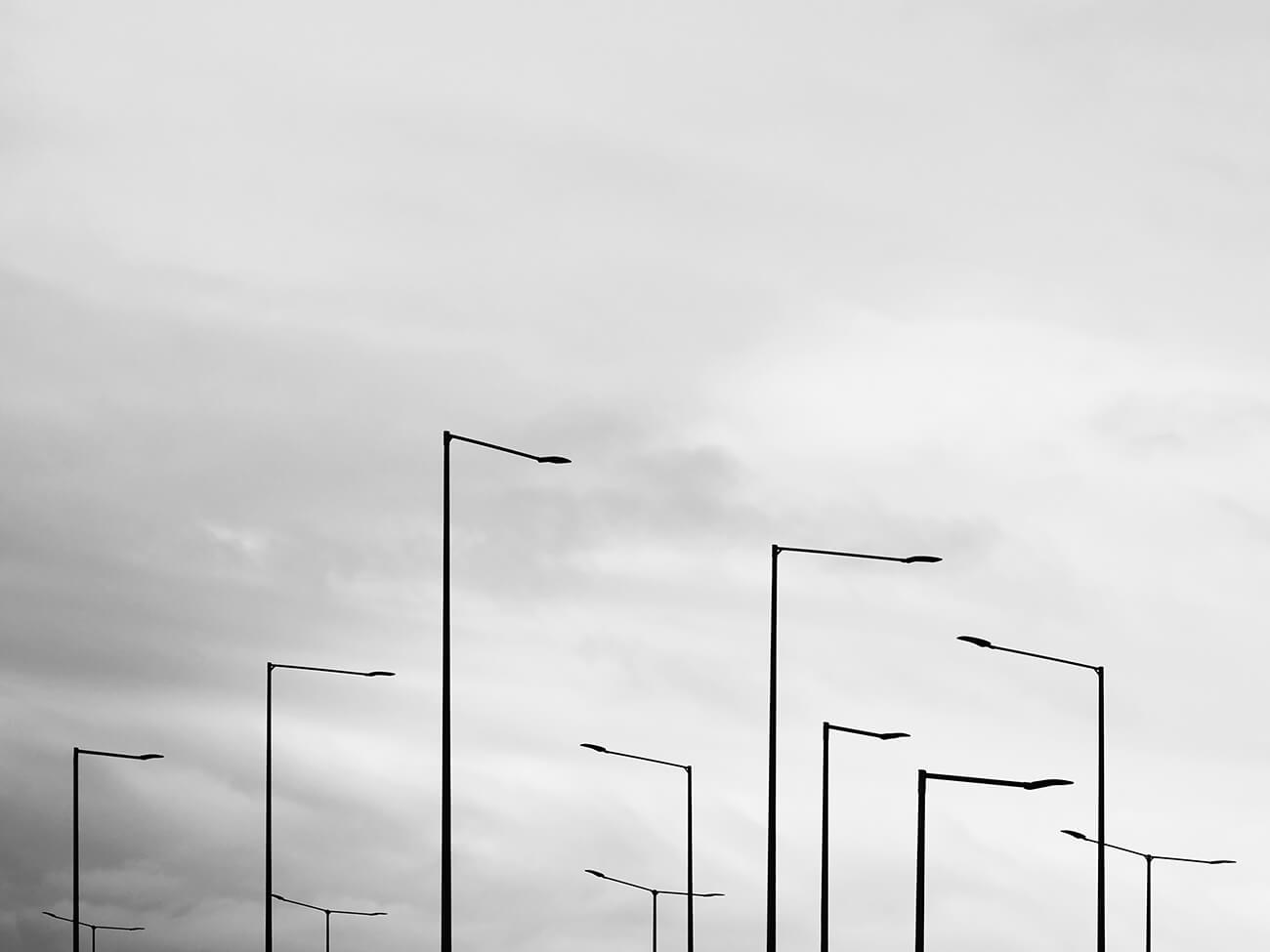
Verticals © Jaroslav Mares
The series of images Verticals was created during our holiday in Linz, Austria in 2021. The
photos show unusual views of the light poles on the highway bridge over the Danube River. The
morning backlight highlighted the silhouettes of the columns and their mutual arrangement.
All About Jaroslav Mares
Synchrodogs (Ukraine)
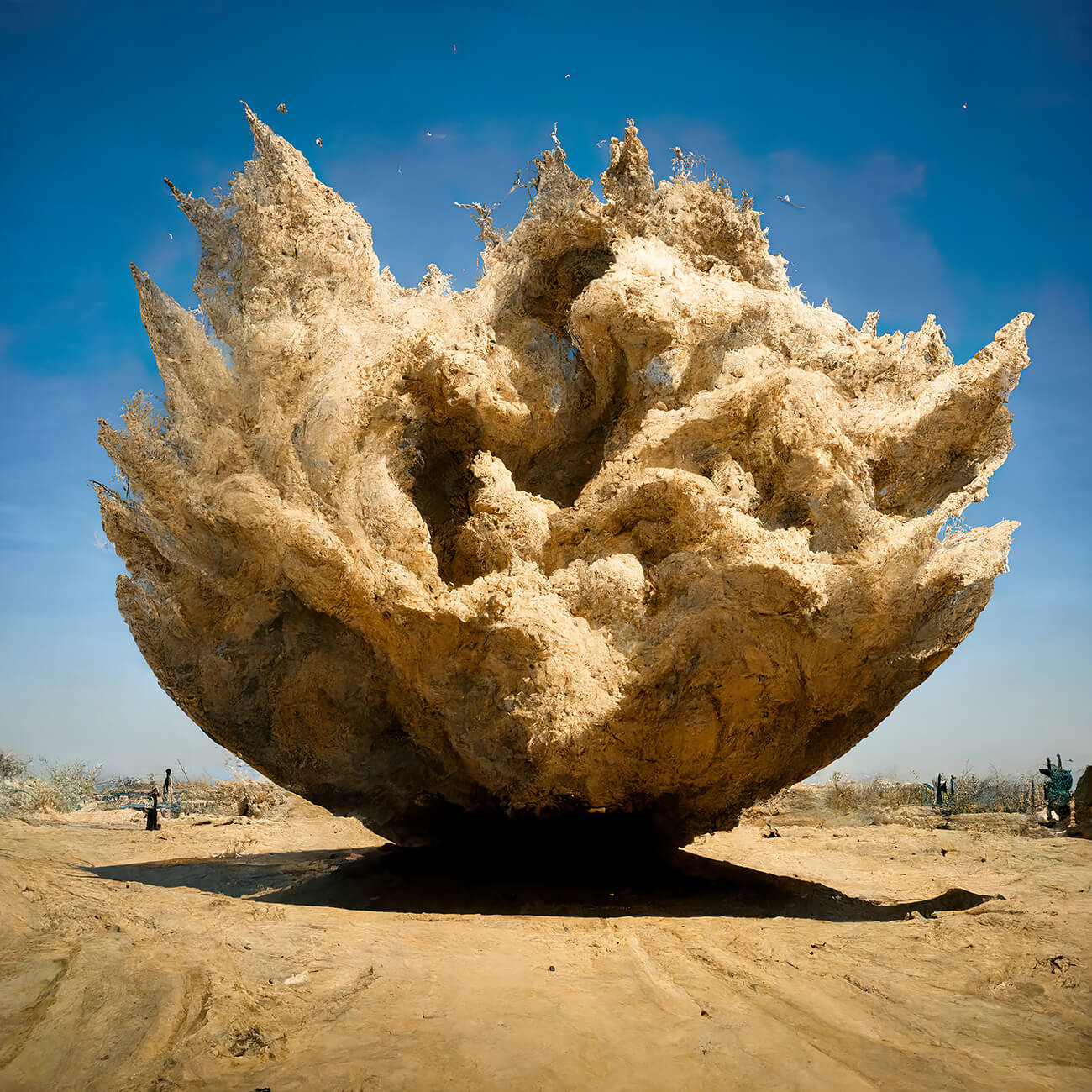
Impossible Installations © Synchrodogs
‘Impossible Installations’ is a visual representation of human and technology merging together
to create photographic project of sculptures that are too surreal to exist in real life. The project
is a collaboration between Synchrodogs artistic duo and Artificial Intelligence, created in a truly
innovative manner via using mixed media art to extract and redefine symbiosis achieved
between human and technology in the last century.
Changing the environment in a surrealistic manner artistic duo aimed to highlight the
rapid changes humanity is facing due to fast flow of innovation and progress. Observing the
new ways the Earth begins to look like as a result of human interventions into the environmental
processes, they created a series of works that balance between the real and the imagined, and
are at the same time a visual reflection on the contrast between the past, the present and the
future (which always remains unknown and unpredictable, leaving us some space for invention).
Torrance York (USA),
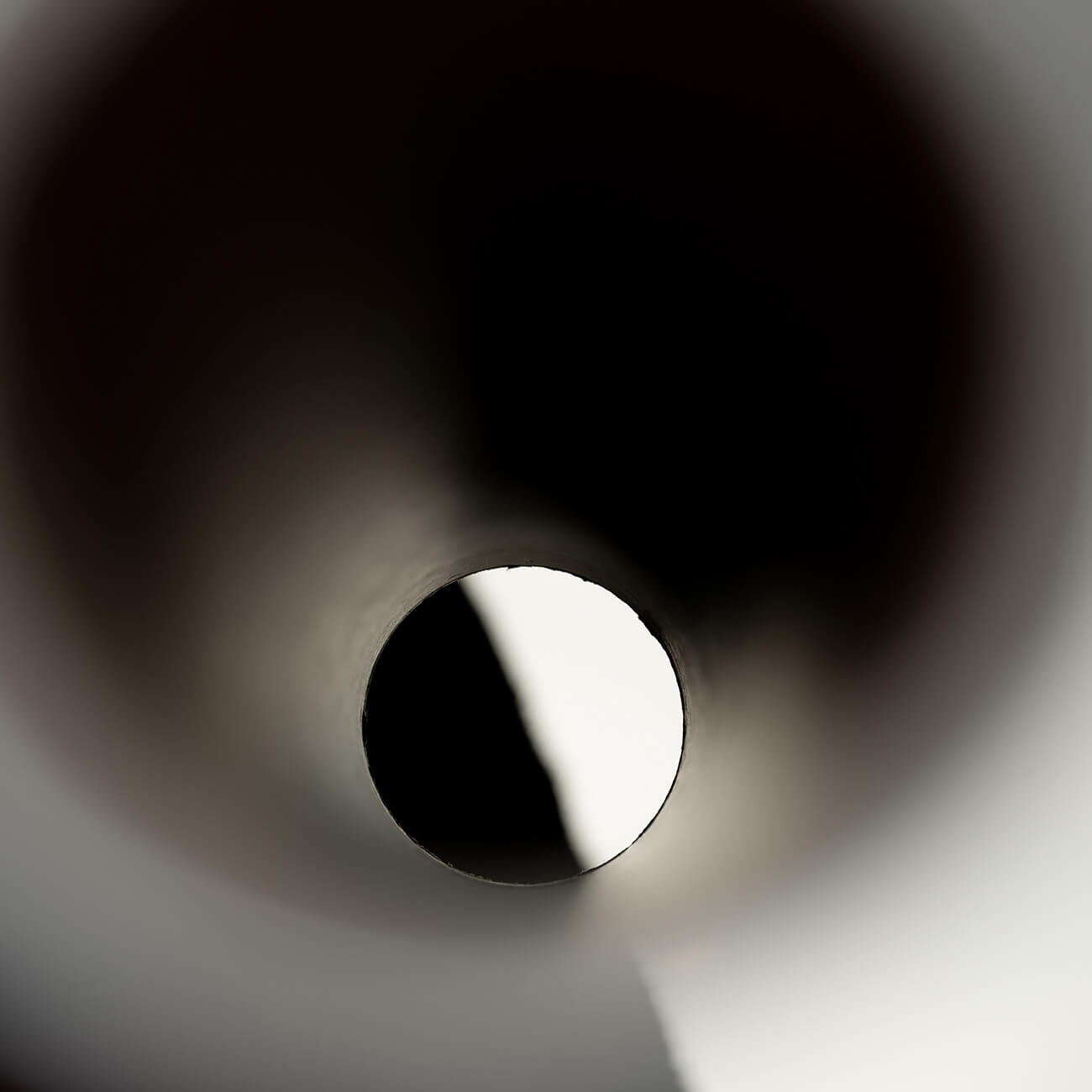
Untitled 9390, 2020 from the series 'Semaphore' © Torrance York
In Semaphore, I explore the shift in my perspective after being diagnosed with Parkinson’s
disease. Through images, I consider what it means to integrate this life-altering information into
my sense of self.
Ernie Luppi (USA)
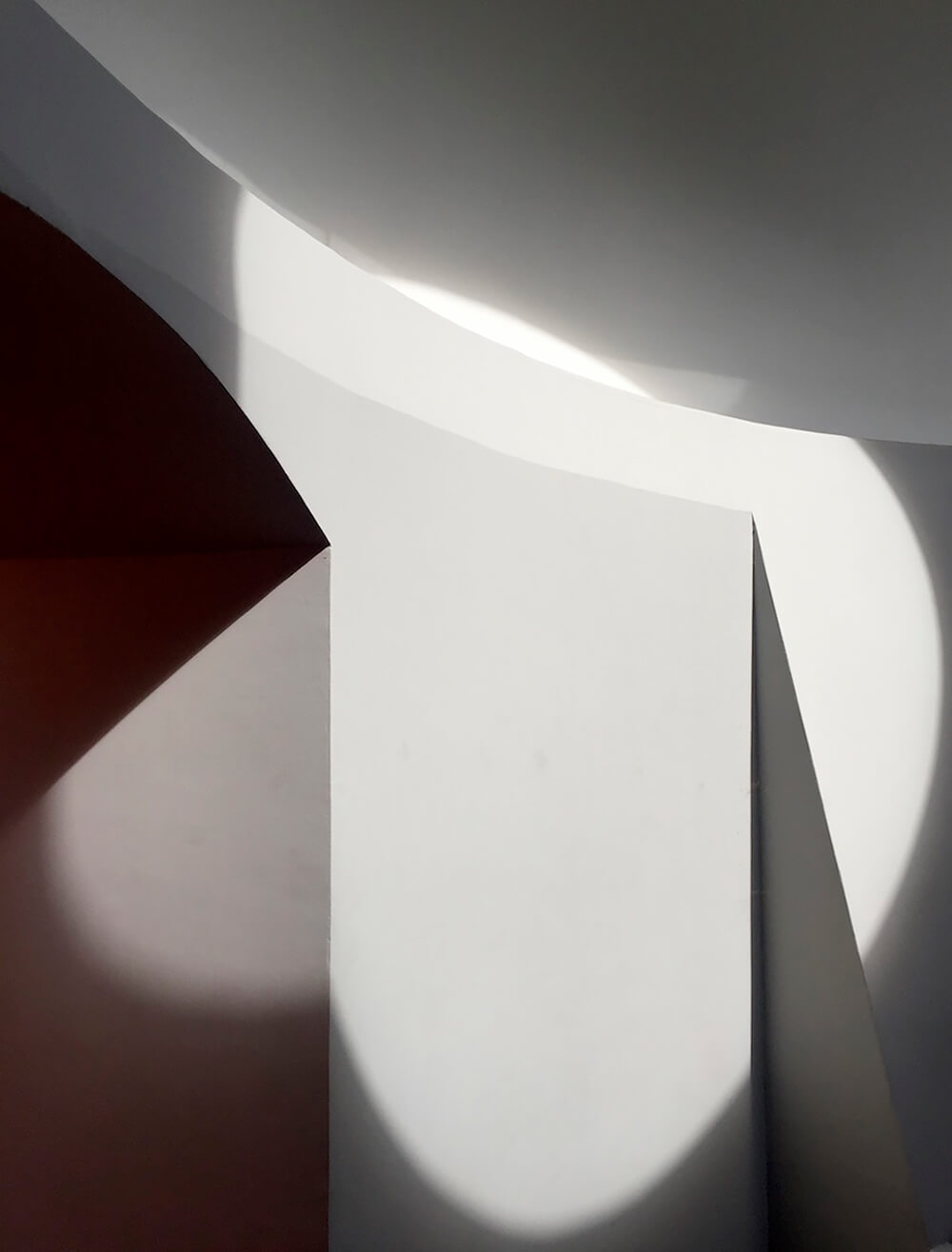
Light and Shadow #3 from the series 'Scenes/Seen Golden Gate Park, San Francisco' © Ernie Luppi
As far as I can remember, I have been fascinated by shapes and textures and the effects of light and shadow when creating an image.
All About Ernie Luppi
MG Vander Elst (USA)
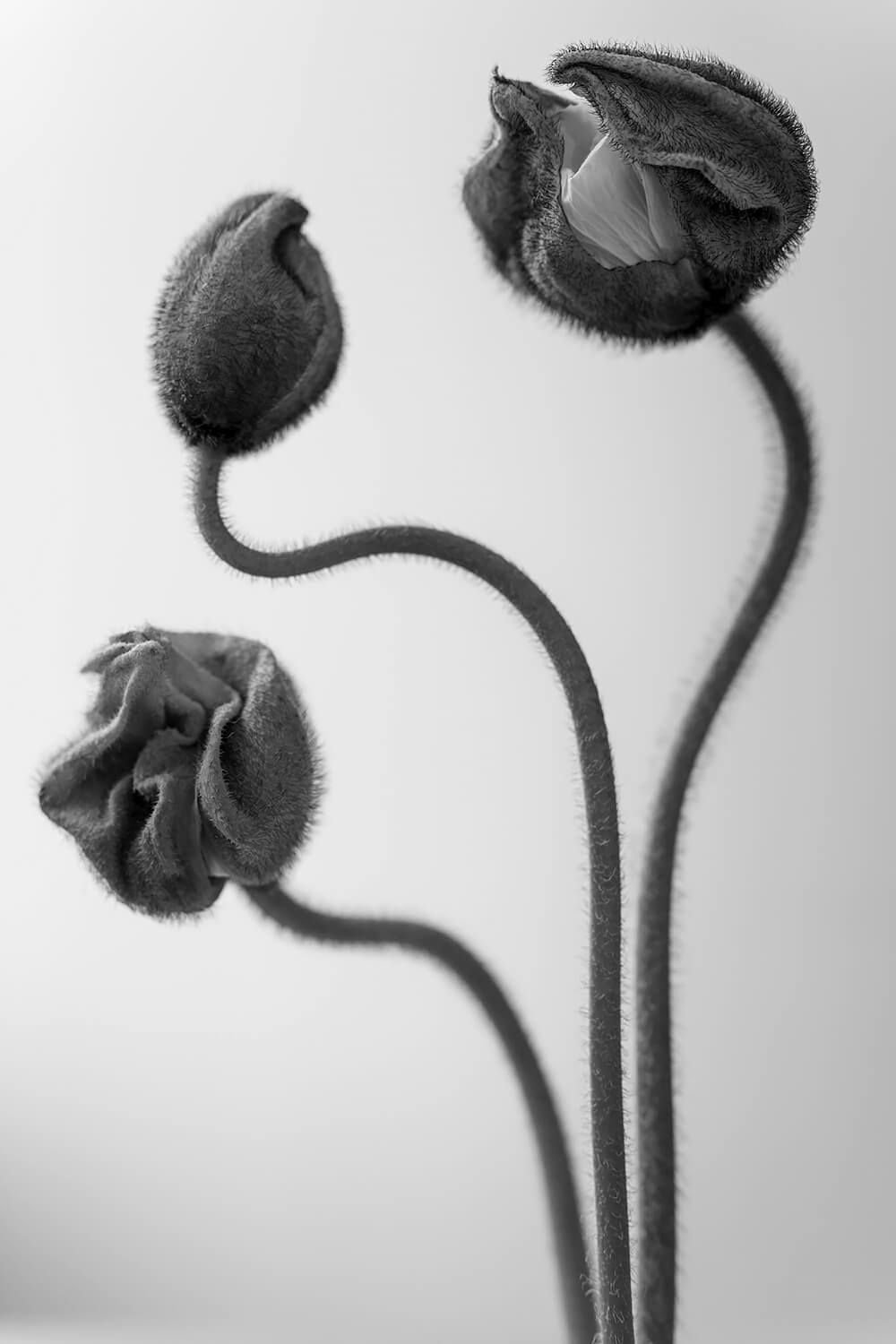
Poppy Trio from the series 'Letting Go' © MG Vander Elst
Floral images are my new center, through this process I am learning that by photographing the
simple lines and the daintiness of these flowers they become an exercise in form, in
juxtapositions and in letting go.
By closely observing these living forms with their shifting shapes who then transition, mature
and wilt thus creating this contrast in beauty, when blossoming or dying combined with their
shaggy stalk versus the petal's ethereal texture generate this visual
dissonance that captivate me.
I am finding a swell of energy in this newfound freedom of moving in a place I have never been.
The flowers become metaphors soaked with my daily emotions.
All About MG Vander Elst
Golnaz Abdoli (USA)
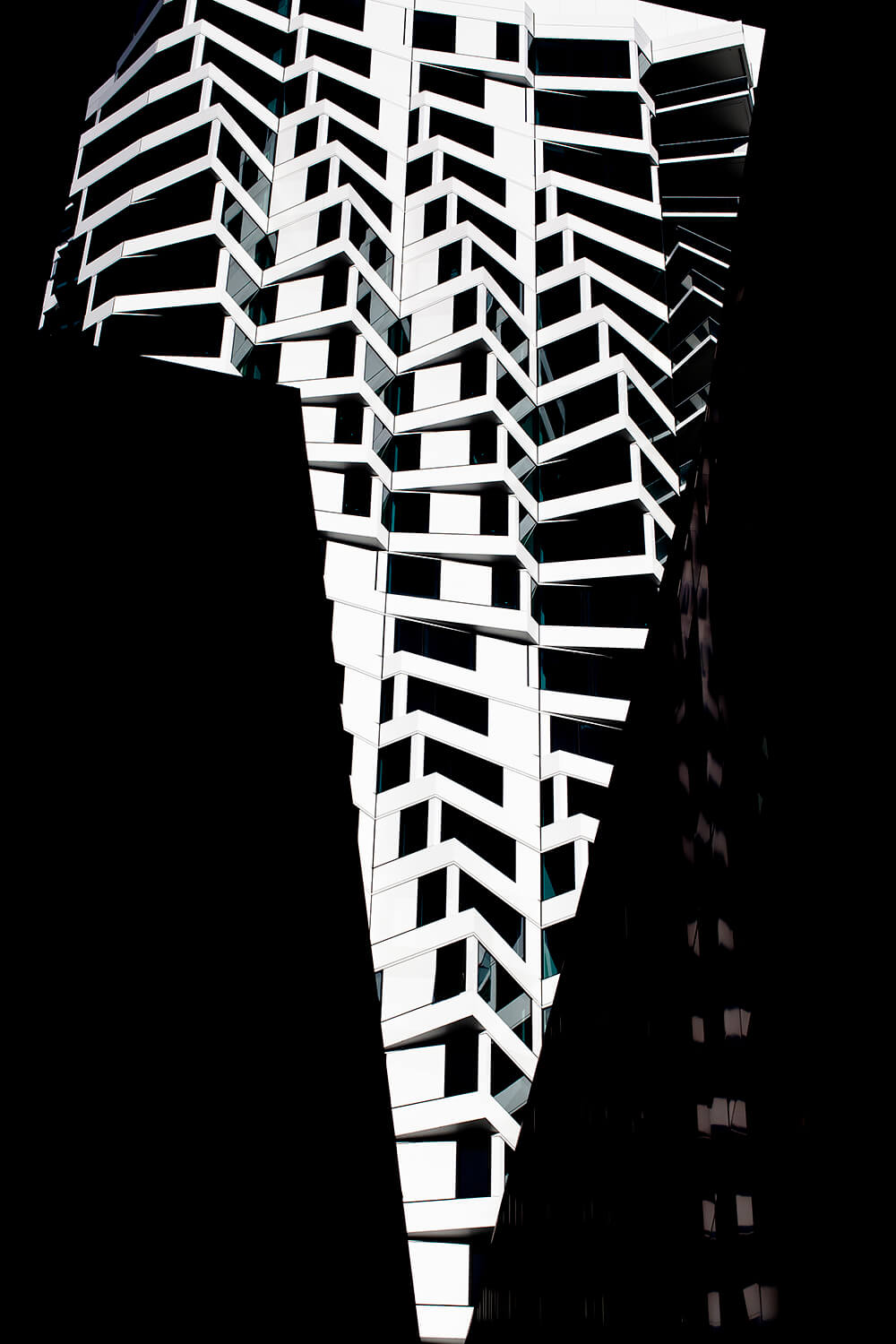
San Francisco High Rise from the series 'Interpreting Contemporary Architecture' © Golnaz Abdoli
This is an image of the Mira Tower in San Francisco, California. The bay windows of these
condominiums gradually twist in different directions to give this 400 feet high rise its dynamic
quality.
Claudia Tombini (Italy)
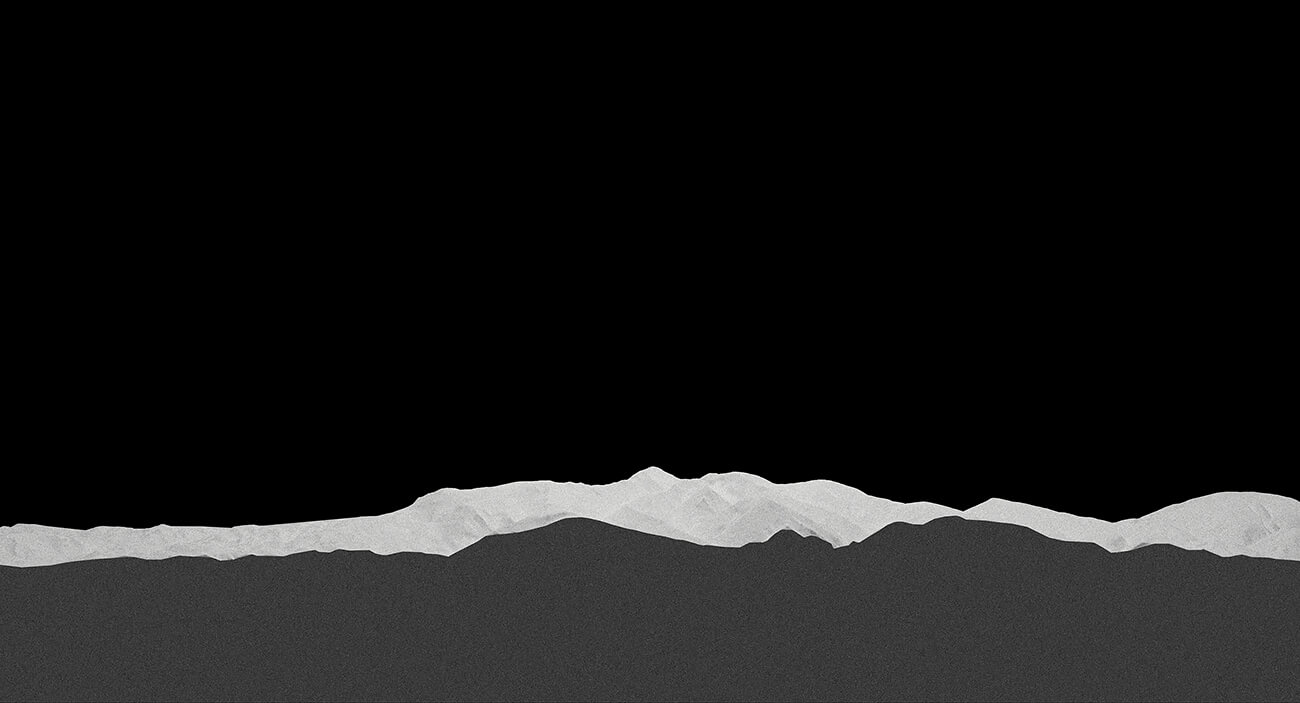
SECTION from the series 'MoveTo LineTo' © Claudia Tombini
There is a human sense to architecture, which comes before architecture, as we actually live
our lives without it, in an unbroken series of passages, intersections, and places which all leave
their own special resonance and memory within ourselves. As I move through these, without
ever pausing in the gaps, I find myself measuring out the distances I have covered, trying to heal
the wounds that the surface of things displays. There is no such thing as spacial distance. The
distance in the landscape is actually temporal: living is an art of spacing, living is geography.
All About Claudia Tombini
